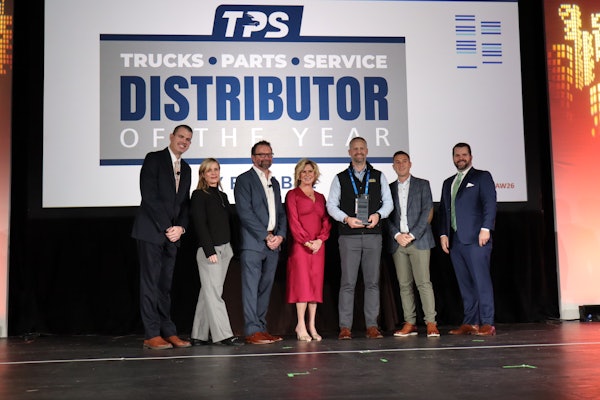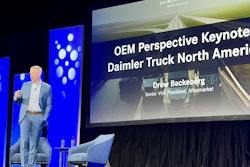By Bill Wade, Wade & Partners
Every single time I sit down to write about the heavy-duty business, I think about the original aftermarket muse, curmudgeon and editor Jim Moss. As founder and owner of Truck Parts & Service, Jim was free to carp about whatever bugged him, whether the subject was private label, distributor consolidation, manufacturers not spending enough on ads or, most famously, United Airlines.
One of my secret pleasures was to read his In My Opinion column that appeared in the front of every issue. His occasional battles with Chicago’s hometown airline were like David taking on Goliath (cue the Rhapsody in Blue soundtrack).
It is with this tradition in mind that I want to compare United’s (and American’s and Delta’s) new marketing creation called ‘Basic Economy’ with any other failed ‘good-better-best’ offering in the truck parts business.
Punitive marketing: Taking customer money while belittling and aggravating
Even the best airline ‘mileage-plus’ customer has to dip into the personal piggybank once in a while. But don’t dare think that those years of flying, hours of delay, smelly seatmates, perfectly tortuous seats and see-thru coffee will protect you from the newest scourge. We are talking about marketing based on no. As in no exceptions for good customers (in this case greater than 2,000,000 miles).
Worse than the classic bar-lowering efforts of People Express, Ryanair or Spirit, which took the time to lower expectations first, this is a pricing scheme based on saying No. As in no carryon, no overhead access, no seat assignment, no changes, no refunds. No, No, NO! (Truthfully, I didn’t check on extra charges for life-jackets or emergency oxygen.)
Are we as an industry guilty of this negative cloud when we deal with customers who may need a white box product? No warranty, no loyalty points, no delivery, no installation help or no returns. No frills is fine, but don’t crow the no!
Cost-based limitations are one thing, but don’t let the negative presentation confuse the customer. And here I’m not referring to private label, just the ‘good’ or bottom-level product. End users understand pricing like never before due to constant exposure to Amazon and Costco. A lot of off-brand limitations are understood and accepted. Amazon tries to minimize the ‘no-effect’ with new tech, Costco with the best employees.
Private label vs. store brand vs. group offering. Trust is still basic.
Consumers want more private label options, and are turning to great merchandisers like Costco, Walmart, club stores and dollar stores to meet their needs. Store brands aren’t just attracting shoppers in-store, spurring them to pick private label ketchup as opposed to Heinz. They’re also motivating consumers’ decisions on where they shop in the first place. Fifty-three percent of shoppers use store brands to pick where they shop now, versus 34 percent in 2011.
Private-label success is strongest in commodity driven, high-purchase categories and those where consumers perceive little differentiation. Private-label growth typically comes at the expense of small- and mid-sized brands. Fleet specialist consolidation and the expansion of the discount format are key drivers for private-label growth in industrial markets.
A different take from an aged veteran
All the discussion of the Amazon effect, etc. has brought out some strong and well-thought out comments from a very successful traditional operator, Marc Karon. This Florida owner of Total Truck Parts has a great perspective, being one of the few survivors of the Transcom consolidation attempt that failed in the early 2000s. He bought it back and is thriving with six branches and an active export effort.
“Competition from Internet and private labelers offers a chance to showcase your brands,” says Karon, a prior Truck Parts & Service Distributor of the Year. Total’s line card looks like a directory of leading truck parts brands. His take:
- Well-supported supplier brands are a strong purchase driver for both technicians and purchasing guys;
- Supplier marketing managers are thus well-advised to invest in brand building to positively impact distributor choice, rather than reducing prices, cutting field forces or increasing product percentage margins as the prevailing opinions seem to suggest;
- Brand-based marketing is never a passive pursuit, and never a negative. Higher-quality lines transform product-first marketing into an experience, linking product to purchase source;
- Distributors use brands not only as associative or predictive cues of product (and distributor) performance, but also as predictive indicator of a product’s expected future profitability for the supply chain.
His question, and mine, is the bigger operating and investment issue: Good, better, best. Why? Why split your forces and investment to serve a small part of the bottom and least loyal portion of the customer base? Why confuse employees and customers?
Decide and pursue at max power! As others have correctly observed: “There is nothing in the middle of the road but yellow lines and dead armadillos.”
Bill Wade is a partner at Wade & Partners and a heavy-duty aftermarket veteran. He is the author of Aftermarket Innovations. He can be reached at [email protected].











